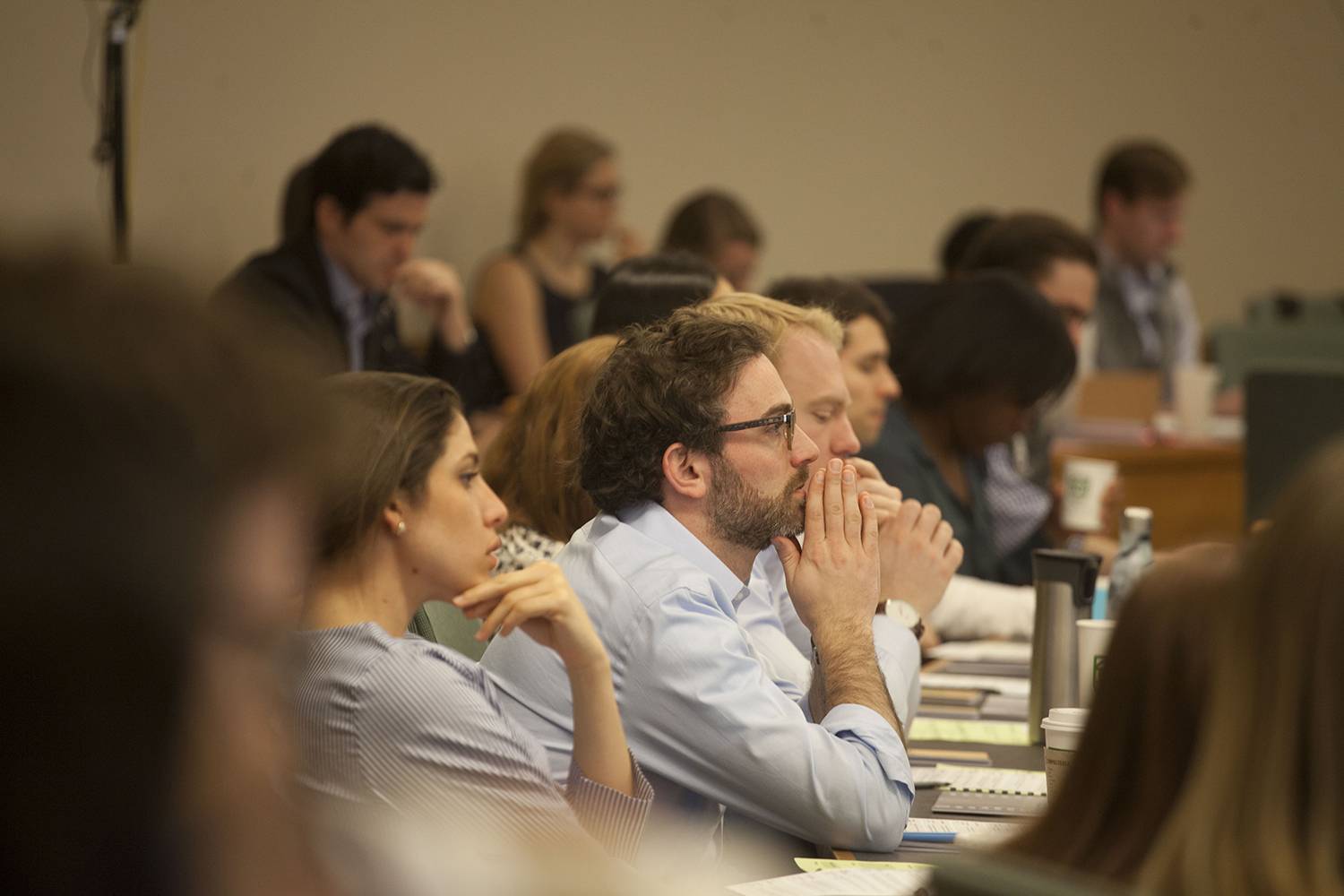Coming Soon: An Enhanced Core Curriculum for the Tuck MBA
A Curriculum Review Committee chaired by accounting professor Phil Stocken has identified five design challenges for a refined Tuck curriculum.

One goal outlined by the committee is to have a greater degree of integration between courses.
At the beginning of 2018, Dean Matthew Slaughter announced the creation of a Curriculum Review Committee, chaired by Jack Byrne Professor of Accounting Phil Stocken.
The committee was tasked with reviewing the core and elective curriculum and recommending refinements to ensure it continues to be vibrant and advance Tuck’s mission to teach confident humility, empathy, and judgment in a way that is personal, connected, and transformative.
“The world has changed significantly since we last [2008] took a systematic look at what we teach in the core and how we teach it,” Slaughter said in January. “While many individual courses have been refined to keep pace with emerging business forces, a thorough review that considers these forces in the context of the core curriculum as a whole will strengthen this foundation of learning at Tuck.”
Stocken and the committee—composed of faculty, staff, and students—met soon after Slaughter’s announcement and began gathering data from many sources: alumni, students, recruiters, and other top-ranked domestic and international business schools. The committee also gained key insights from members of Tuck’s various advisory boards, who shared knowledge about the capabilities senior managers expect Tuck graduates to possess.
While many individual courses have been refined to keep pace with emerging business forces, a thorough review that considers these forces in the context of the core curriculum as a whole will strengthen this foundation of learning at Tuck.
After reviewing the data, the committee identified five design challenges for the refined curriculum: (1) the need to grow wise leaders; (2) the need for students to analytically develop and defend a point of view; (3) the core must reflect timely and timeless content; (4) the core must address contemporary business issues; and (5) the need to help students navigate their career choices.
With those design challenges in mind, the committee began constructing the refined curriculum. One theme that will run through it is a greater degree of integration between courses, co-curricular entities (such as learning teams and study groups) and extra-curricular activities like speaker series, club events, and conferences. “We want to use those experiences to further enrich the core,” Stocken says. Another theme is career readiness: there will be a focus, early in the first year, on self-awareness and the characteristics of different industries and career choices, so students can be more purposeful in their career search.
And then there is the question of what to emphasize in today’s environment. Given the importance of data analytics, big data, and computer programming in business today, the curriculum was to offer students more opportunities to learn and practice those skills. Leadership, too, will play a larger role in the core. “We’re moving the leadership framework right into the introductory term,” Stocken says, “So it sets the foundations for students’ subsequent learning."
